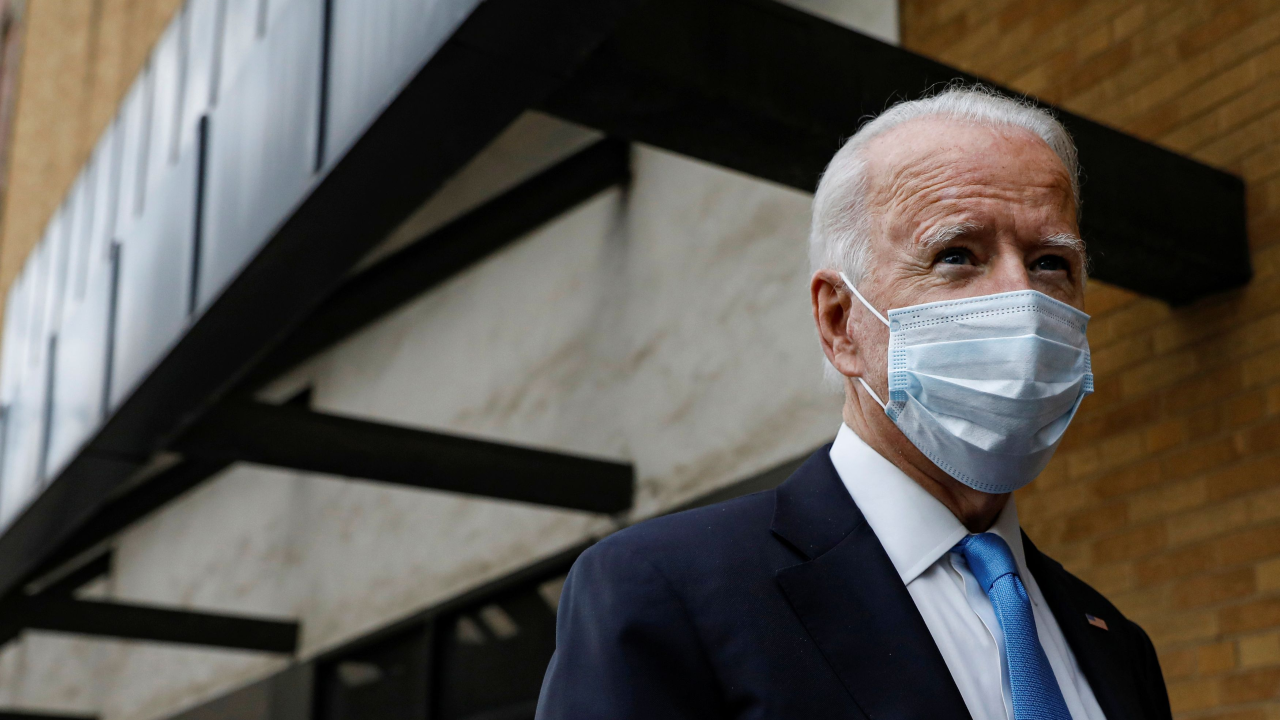
Editor's note: Thomas O. Falk is a London-based political analyst and commentator. He holds a Master of Arts in International Relations from the University of Birmingham and specializes in U.S. affairs. The article reflects the author's opinions and not necessarily the views of CGTN.
As the proclaimed leader in upholding human rights, the United States has been at the forefront of condemning human rights abuses globally. However, the human suffering that presents itself domestically is often not discussed sufficiently. If President Joe Biden seeks to lead by example, he will need not only to address but eradicate issues that are rooted deeply in the U.S.' society and - increasingly – its political system.
First, racism remains one of the country's major issues, and it continues to appear in many forms. The killing of George Floyd at the end of May 2020 once again highlighted serious grievances among the American police authorities. Still, excessive police violence is just one of many problems facing American law enforcement.
Black men had an incarceration rate almost six times higher than white men in 2018. Statistically, every third African American man born in 2001 ends up in prison at least once in their life.
Once arrested, people of color have a higher risk of prosecution and are sentenced to more frequent and longer sentences than white people for the same offences under comparable circumstances. Moreover, black people arrested are 75 percent more likely to be charged with a mandatory minimum sentence than white people for committing the same offence.
Joe Biden is acutely aware of this ongoing injustice but whether he will be the president who can break the racial barrier remains to be seen.
But it isn't only African Americans that find themselves treated all too often poorly in the U.S. Asylum seekers on the southern border, in particular, have had their human rights likely violated under the former Donald Trump administration.

A doctor treats a patient at an ICU in a hospital in California, U.S., January 3, 2021. /CFP
A doctor treats a patient at an ICU in a hospital in California, U.S., January 3, 2021. /CFP
Refugees are often separated from their families - and their children - and live in conditions that the United Nations criticized as potentially violating international law. For a country whose Statute of Liberty states, "Give me your tired, your poor, your huddled masses," these are untenable conditions.
Second, in 2020, the United States failed catastrophically at its most basic function: protecting its people. The COVID crisis management the previous administration displayed marked nothing short of arguably one of the greatest failures of government in American history.
The country was led by a president, who contributed to the polarization of views on masks and other forms of disease prevention, and who created pretty much the worst response possible. One year after Trump pontificated the virus would simply "disappear like a miracle," the U.S., which accounts for just 4 percent of the world's population, has 20 percent of the world's COVID deaths and more than 500,000 in total.
It has laid bare the poor public health infrastructure and a tattered social safety net, undignified for a country of the U.S.' standing and simply insufficient to help their people when they needed to support the most.
Third, politicians have put their interests over the country. The traditional gridlock that has been synonymous for Washington has reached a whole new level of partisanship with little sign for the aforementioned issues to change. From an ongoing issue of voter suppression, which - again - disproportionately affects Black Americans, gerrymandering or redlining, the two parties are all too often interested in solely maintaining power through catering to their voters in lieu of creating a better life for all Americans.
Bi-partisan efforts to stabilize the country and to help people in need have become a rarity. Joe Biden's $1.9 trillion COVID relief bill has yet to pass the Senate. Prior it only passed the House via party lines. Given the minimum wage stipulation the bill entails, there is still no guarantee that it passes the Senate, despite the necessity to help the American people.
The decay of the Republican Party into the party of Donald Trump will only further exacerbate this process and make it harder for Joe Biden to govern successfully and in a way that is needed to address all these aforementioned issues coherently and decisively.
It makes it all the more important, however, to address these domestic issues that cause suffering amongst the own population first before pointing the finger towards other sovereign nations. There is still a lot of work to do for Biden if he truly seeks to heal a divided nation.
(If you want to contribute and have specific expertise, please contact us at opinions@cgtn.com.)

